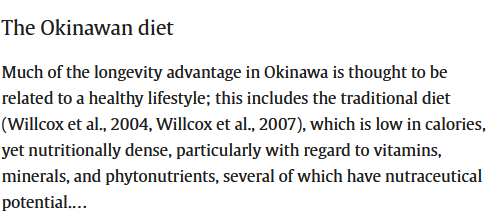Very good question.
I also wonder how much variety there is among specific people. An example might be just taking the people that live on my road and quantifying how we eat, classifying us as “Standard American Diet”. A fair number of them fit into our common thinking of SAD pretty well. A very few eat… well, garbage and little more. A few would be eating quite a lot of home-grown meat and veg, not a lot of processed stuff. And at our house, we eat very little carbs and are quite meat heavy, pretty much in the keto moving towards carnivore category. And we all live in the same place. How much of that happens in the Blue Zones?
A person who visited from Antarctica might visit the drug house where they eat horribly and note how us “Americans” eat. Another person from the North Pole might visit our house and see how wonderfully we “Americans” eat. If they each write a book titled “How Americans Eat”, I suspect they’d read quite a bit differently.
At least to some extent, I have to wonder how much people find what they want to find.
Previous reading on the subject from many years ago got me to the conclusion that extending longevity had numerous factors as mentioned above. A few that I remember were; generally taking care of yourself (you’d think it obvious but some people just don’t)… not smoking, not drinking to excess, getting some exercise, stuff like that. Also being a part of a church or community where you had good relationships and people connections. Also putting yourself in places where stress levels were lower and more healthy. And of course, being a bit picky about the diet. (The things noted at the time were that the longest lived people were not vegans, did eat meat, but were perhaps somewhat choosy about the meat that they did eat. I do not recall whether actual quantity of meat was a part of the things I was presented with.)
So yeah, I get that other factors are very significant and it’s not just about food. There may also be a range of eating styles that a person may find to be their “sweet spot”. For those of us who have found more meat to be a better place for us, we’re not wrong. For those who have found that more veg is a better place for them to be, I don’t feel like I can tell them they’re wrong. But I do pay attention to how people eat, how they age, and that does relate to longevity in general.
Sorry I’m a little long winded.


